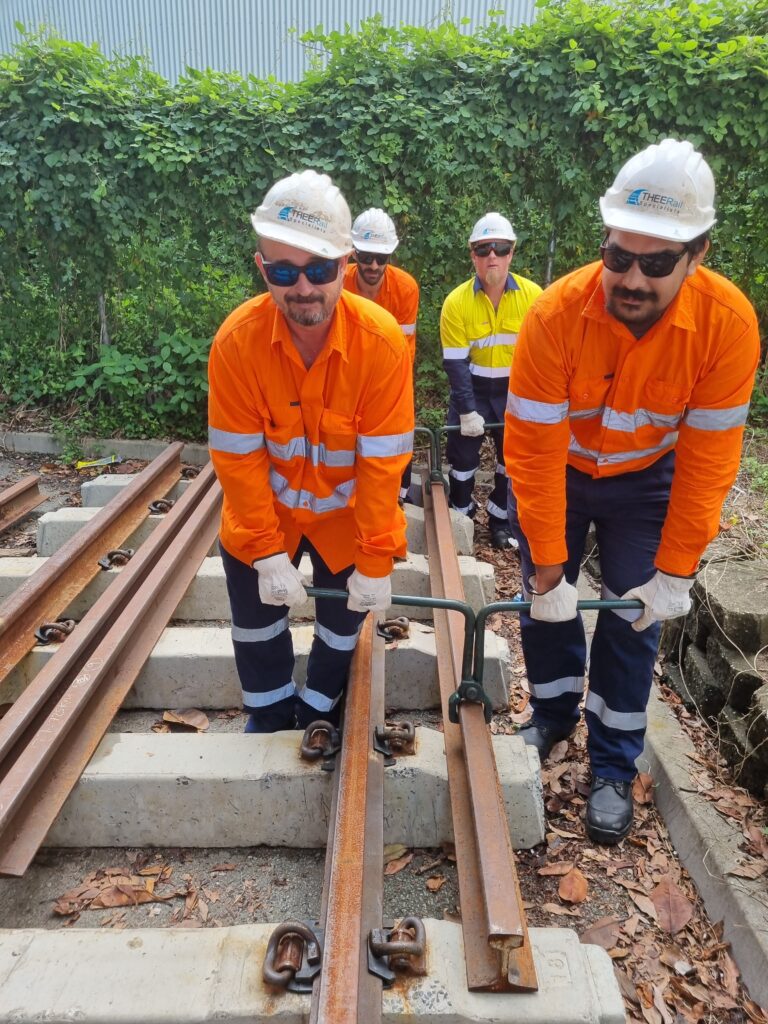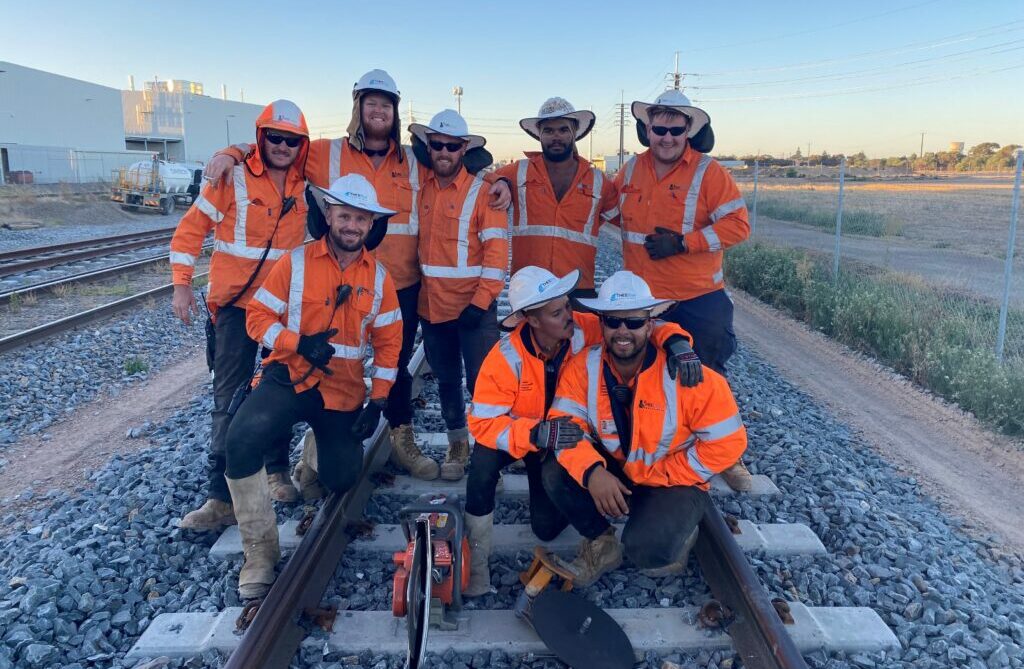admins
- Posted on
- No Comments
Why should I pursue a career in Rail Infrastructure?
What Occupations Can a Certificate II in Rail Infrastructure Lead to?
The rail industry is the sixth most extensive network in the world, contributing over $26 billion to the national economy; they are the leaders in innovation, productivity, and the world’s best practice (Commission, 2018). Additionally, the rail industry employs close to 200 000 people, directly and indirectly (Association, 2017). A Certificate II in rail infrastructure could lead to occupations such as Infrastructure Maintainer, Light Rail Track Worker, Passenger Booking Clerk, Rail Customer Service Assistant, Rail Plant Operator, and Railway Track Worker (Government, n.d.). In 2020 the average full-time railway track worker on an adult wage would earn approximately $2,074 per week, which is higher than the average of $1,460 (Outlook, 2020).
What Does a Career in Rail Infrastructure Involve?
Duties as a rail infrastructure worker may include but are not limited to:
- Lay and fix the foundations and sleepers for tracks.
- Cut rails to length.
- Install railway switches.
- Repair and maintain worn or rough rail ends.
- Remove and replace the damaged track.
- Examine and maintain switch signal lamps.
- Examine and maintain the wheel bearings of the rolling stock.
- Use various tools and equipment, including welding and industrial bolting equipment.
A Future-Proof Job
What Does Future-Proof Mean?
With the advancement of technology, many jobs are set to disappear, and many already have. A future-proof job is a job that is likely to remain in demand in the future as technology progresses and the job market changes (Team, 2021).
Why Rail Infrastructure is a Future-Proof Job
The concept of railways is more than 200 years old, yet railways are now more than ever being built. Railways provide quick and green transportation to large quantities of goods and people. Moreover, railways provide traffic relief which is an important reason why most intelligent cities invest in rail. By pursuing rail infrastructure as a career, there are opportunities to be hired as a contractor to help build railways, and there is a high demand for continued maintenance (Econstructioncareer, 2019).
An estimate of a 375% increase in demand for rail track workers in the next three years was reported by the Infrastructure Market Capacity. In the next five years, major upcoming projects will include Sydney Metro, Cross River Rail, Melbourne Metro and WA’s METRONET for passenger networks and the Inland Rail project for freight. The demand for rail tracks sets to triple, growing faster than any other material (Committee, 2021). Skills such as
The CEO of the Australasian Railway Association (ARA), Danny Broad, speaks about the relevant skills needed in the rail industry and their continuing importance. Broad mentions “technology, innovation, problem-solving and customer service” as some of the most necessary skills in the rail industry (Australia, 2018).
Why is Rail Infrastructure Important?
Working Towards a Smarter City
The rail industry provides Australians with connections, job opportunities, and products and services. In all of Australia’s significant cities, rail has a critical role in relieving road congestion and creating a more liveable environment. The railway contributes to Australia’s economy, with 40% of Australia’s merchandise exports, mainly coal and iron, being reliant on the railway (Association, 2020).
Environmental Sustainability
How does the railway help the environment? How does the railway help the environment? A six-carriage Queensland Rail train can accommodate an average of 480 people, while a motor car can usually only carry five. Still, the average amount of passengers per journey is around 1.5. Why does this matter? If one train can take about 320 cars off the road, not only will this help reduce traffic, crashes and requirements for car parks, but there will also be reduced greenhouse emissions and air pollution (Rail, n.d.). By gaining a Certificate II in Rail Infrastructure, you can be involved in making a greener and more innovative city.
Want to pursue a career as a Rail Worker?
TLI27121 Certificate II in Rail Infrastructure might be the course for you.

Have a question? Contact us now.
Sources
Association, A. R., 2017. A NATIONAL RAIL INDUSTRY PLAN FOR THE BENEFIT OF AUSTRALIA.
Association, A. R., 2020. Value of Rail.
Australia, R. a. I., 2018. Building the skills to meet rail demand.
Commission, A. T. a. I., 2018. Industry Capability Reports.
Committee, A. I. a. S., 2021. Rail.
Econstructioncareer, 2019. Is rail engineering a promising career and how you can get a job in rail?
Government, A., n.d. Certificate II in Rail Infrastructure.
HQ, C., n.d. Rail Infrastructure Worker.
Outlook, J., 2020. Railway Track Workers.
Rail, Q., n.d. Queensland Rail and the Environment.
Team, I. E., 2021. What Are Future-Proof Jobs? (12 Career Paths To Explore).



